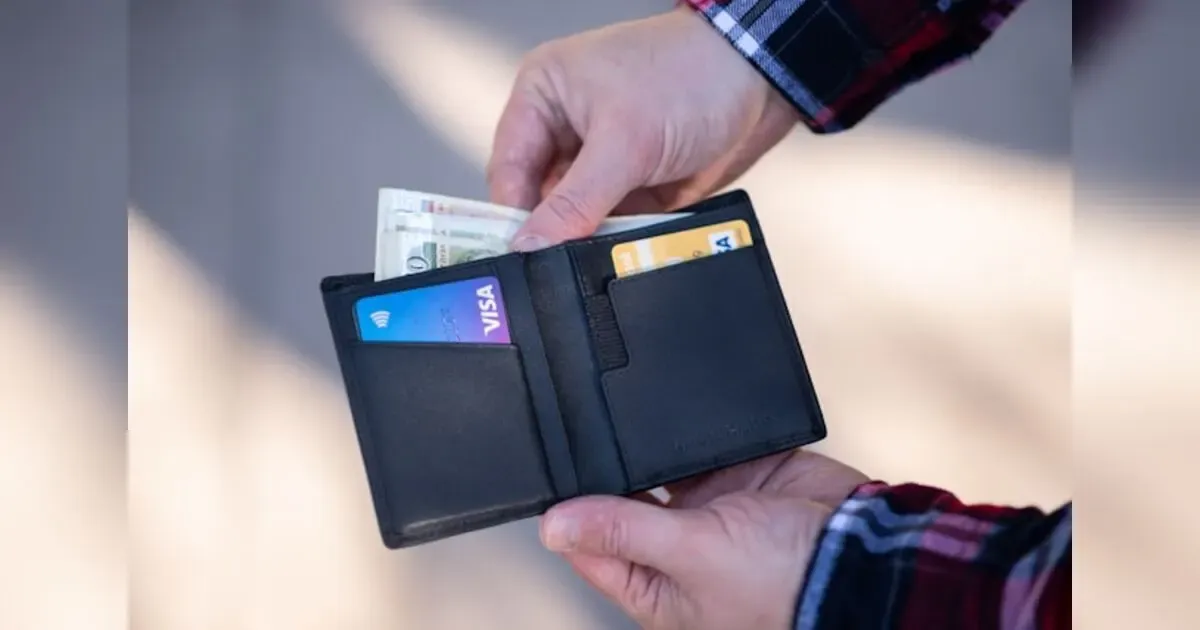The rise of mobile wallets and contactless payments has undeniably transformed the financial landscape. Convenience, speed, and security are often touted as the hallmarks of these digital transactions. However, amidst the growing popularity of cashless options, cash payments continue to hold their own, offering a unique set of benefits that remain relevant in today's world. This article delves into the advantages of using physical currency, exploring its role in budgeting, privacy protection, financial inclusion, and fostering a sense of security in an increasingly digital world.
Budgeting and Financial Awareness
One of the most significant advantages of cash is its tangibility. Holding physical bills and coins provides a concrete sense of how much money you have on hand. This tangibility can act as a powerful budgeting tool. Studies have shown that people tend to spend less when using cash compared to credit cards or mobile wallets [1]. The act of physically handing over cash creates a mental barrier that can encourage more mindful spending. Additionally, with cash, the amount you have readily available is clear and finite. This can help curb impulsive purchases and overspending, promoting better financial discipline.
Mobile transactions, on the other hand, can create a sense of detachment from the actual cost of goods. With a tap or swipe, the financial transaction becomes less tangible, potentially leading to a disconnect between spending and its consequences. Cash allows for a more immediate awareness of how your money is being used, fostering a sense of responsibility and control over your finances.
Privacy and Data Security
In an era of growing concerns about data breaches and identity theft, cash offers a unique layer of privacy. Cash transactions are not linked to your personal information or online accounts. This can be particularly appealing to individuals who value their privacy and prefer to keep their spending habits shielded from prying eyes.
Mobile transactions, while often touted as secure, leave a digital footprint. Every purchase is logged, potentially creating a detailed record of your spending habits. This data can be used for targeted advertising or even sold to third-party companies. Cash transactions offer a level of anonymity that digital payments simply cannot match.
Financial Inclusion for the Unbanked and Underbanked
Cash remains a vital tool for financial inclusion. Millions of people around the world are either unbanked, meaning they have no bank account at all, or underbanked, meaning they rely heavily on alternative financial services. For these individuals, cash is often the only way to participate in the economy.
Mobile wallets and digital payments often require smartphones with internet access, which can be a barrier for low-income individuals or those living in remote areas. Cash eliminates this barrier, ensuring everyone has access to a basic means of conducting transactions.
Security and Reliability in Times of Crisis
Cash is a dependable form of payment, especially during emergencies or unforeseen circumstances. Natural disasters or power outages can cripple digital infrastructure, rendering mobile payments useless. Cash, on the other hand, remains a reliable means of exchange, even when the technological systems we rely on fail.
Furthermore, cash can be a valuable asset in times of economic instability. If a nation's currency experiences a digital crash, physical cash retains its value and can be used for essential purchases.
Combating Overspending and Impulse Purchases
The allure of a quick tap or swipe with your mobile wallet is undeniable. But in the age of instant gratification, the ease of digital transactions can lead to a dangerous pitfall: overspending and impulse purchases. This article explores the power of cash as a tool to combat these financial foes, drawing upon the advantages highlighted in the previous discussion on physical currency.
The Tangible Power of Cash: A Budgeting Ally
One of cash's greatest strengths in the fight against overspending lies in its tangibility. Unlike the abstract numbers on a credit card statement or bank app, holding physical bills and coins provides a concrete sense of how much money you have readily available. This visual reminder acts as a powerful budgeting tool. Studies have shown that people tend to spend less when using cash compared to digital methods [1]. The act of physically handing over cash creates a mental barrier, forcing you to confront the cost of your purchase in a way that a tap or swipe simply cannot.
Imagine you've allocated $50 for groceries this week. With cash, you can visually track your spending as you pay for each item. This awareness encourages mindful purchases and discourages exceeding your budget. Conversely, digital transactions can foster a sense of detachment from the actual cost, leading to overspending and buyer's remorse later.
The Pause Button: Cash as a Gatekeeper Against Impulse Buys
Impulse purchases are often fueled by instant gratification and a lack of self-control. Cash acts as a natural "pause button" in the buying process. The need to physically withdraw money from an ATM or count out bills from your wallet introduces a time delay, allowing for a moment of reflection. This pause can be crucial in breaking the cycle of impulsive buying.
Ask yourself:
- Do I truly need this item, or just want it?
- Can I afford it within my budget?
- Would I still want this in a day, a week, or a month?
Taking the time to answer these questions before parting with your cash can significantly reduce unnecessary purchases. This mindful approach fosters a sense of intentionality with your spending, ensuring your money goes towards things you truly value.
The Finite Nature of Cash: A Curb on Uncontrolled Spending
Unlike credit cards with seemingly endless lines of credit, cash operates within a finite system. You can only spend what you have on hand. This limitation acts as a built-in safeguard against overspending. When your cash runs out, the spigot is automatically turned off, forcing you to re-evaluate your needs before dipping into emergency funds or racking up credit card debt.
Furthermore, the act of replenishing your cash requires a deliberate action—a trip to the ATM or bank. This additional step introduces a layer of accountability, encouraging you to review your spending and adjust your budget if necessary.
Cash and the "No Spend Challenge"
For those looking to break free from impulsive spending habits, the "no spend challenge" can be a powerful tool. This challenge involves setting a specific period (e.g., a weekend, a week) during which you avoid all unnecessary spending. Cash becomes your primary payment method for essential purchases like groceries and transportation. Here's how cash benefits this challenge:
- Visibility of Remaining Funds:
The physical presence of your cash allows you to see how much remains and adjust your spending accordingly throughout the challenge.
- Reduced Temptation:
By leaving your credit cards and mobile wallets at home, you remove the temptation of easy digital transactions, promoting a more deliberate approach to spending.
- Increased Awareness:
The challenge fosters a heightened awareness of your spending habits, helping you identify areas where you can cut back in the long run.
Combining Strategies for Optimal Results
While cash offers a powerful weapon against overspending, it's not a one-size-fits-all solution. Consider these additional strategies for a comprehensive approach:
- Create a Budget and Track Expenses:
Knowing where your money goes is crucial for identifying areas to cut back. Track both cash and digital spending to create a holistic picture.
- Set Financial Goals:
Define your financial goals, whether it's saving for a vacation, paying off debt, or building an emergency fund. Having a clear target can motivate you to be more mindful of your spending.
- Utilize Technology Wisely:
Budgeting apps and spending trackers can be valuable tools alongside cash to monitor your finances and stay on track.
Cash as a Safety Net
Cash can serve as a valuable safety net in unforeseen situations. Losing your phone or having your credit card blocked can leave you stranded without a way to pay. Keeping a small amount of cash on hand can provide peace of mind and ensure you have a backup option for essential purchases.
Cash in a Digital World: Finding the Right Balance
While cash offers undeniable benefits, it's important to acknowledge the convenience and efficiency of digital transactions. The ideal scenario for many individuals may involve finding a balance between the two. Cash can be a valuable budgeting tool and a safety net, while mobile payments offer undeniable convenience and speed in everyday transactions.
The Future of Cash
While predictions of a cashless society have been prevalent for years, cash continues to hold its ground. Cash transactions still account for a significant portion of global economic activity, particularly in developing economies.
The future of cash likely lies in its continued coexistence with digital payment methods. As technology evolves, cash may see a decrease in usage, but it is unlikely to disappear entirely.
Unique Advantages Continued
- Resilience:
Cash's physical nature makes it resistant to cyberattacks and infrastructure failures that can cripple digital payment systems.
- Low Barrier to Entry:
Cash requires no special equipment or internet access, making it universally accessible.
- Legal Tender:
Cash remains legal tender in most countries, ensuring its continued use for official transactions and debt settlement.
Challenges and Potential Adaptations
Despite its advantages, cash faces challenges in the digital age. These include:
- Security Concerns:
Cash is vulnerable to theft and loss.
- Costs of Production and Distribution:
Printing, transporting, and managing cash is a significant expense for governments and financial institutions.
- Hygiene Concerns:
Cash can harbor germs and bacteria.
- Counterfeiting:
While less common, advances in technology can make counterfeiting more sophisticated.
To remain relevant, the future of cash may involve adaptations such as:
- Improved Security Features:
Incorporation of anti-counterfeiting measures and trackable elements.
- Enhanced Sanitation Practices:
Exploration of antimicrobial coatings or public education on cash handling hygiene.
- Integration with Digital Systems:
Systems that allow for easier deposits and withdrawals of cash using digital platforms.
- Government Incentives:
Policies that encourage continued cash usage, such as for small transactions or in specific sectors.
Conclusion
Cash, while facing challenges in a digital world, offers distinct advantages that ensure its continued relevance. Its role in budgeting, privacy protection, financial inclusion, and crisis preparedness remains valuable. The future of cash likely lies in its coexistence with digital payment methods, each fulfilling specific needs within a diverse financial ecosystem. As technology evolves, cash may adapt and innovate to maintain its position as a trusted and reliable form of payment.

























